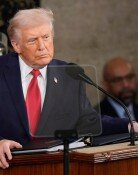Chinas Consumer Price Index Up by 6.9 Percent
Chinas Consumer Price Index Up by 6.9 Percent
Posted December. 12, 2007 03:03,
Chinas consumer price index (CPI) is up 6.9 percent compared to the same period of last year, according to data released by Chinas National Bureau of Statistics Tuesday. This is the highest increase since 1996, when its CPI jumped 8.3 percent, and it has greatly surpassed the 3 percent cap set early this year. Chinas CPI has maintained steady growth over the past decade with a yearly average of 0.9 percent.
Analysts believe this hike to be mainly boosted by food prices which increased 18.2 percent over the last year. Chineses favorite food products, such as pork and poultry, went up 56 percent and 38.8 percent respectively. In addition, the price of edible oil, an essential ingredient in Chinese dishes, was up by 38.8 percent, vegetables went up 28.6 percent, and fruit went up 12.9 percent. However, non-food-product prices rose slightly by 1.4 percent and service products rose by 2.3 percent.
Experts expect that Chinese government will raise interest rate again as the CPI soared up in November.
This year, in order to curb increasing consumer prices, the Chinese government increased its cash reserve ratio from 9.0 percent to 14.5 percent and raised interest rates from 6.12 percent to 7.29 percent. In addition, the revaluation of the Chinese Yuan against the U.S. dollar is currently in the process. After the release of this years CPI, the Yuan against the dollar, which was 7.8073 early this year, hit a record of 7.3797 per dollar.
On the other hand, ahead of the 3rd USChina Strategic Economic Dialogue, which starts today, tensions between two countries are escalating.
Mike Leavitt, U.S. Secretary of Health and Human Services, said, We should make every product made by one country satisfy the market needs of other countries. This remark is a sign that the U.S. will strongly address the problems of Chinas repeated violation of food safety standards.
The U.S. government also plans to call for the Chinese government to take action to even the unbalanced trade volume between two countries and revalue the Yuan against dollar. The U.S. is known to have pressed China over its U.S. trade surplus which has amounted to 238.1 billion dollars until November this year.
However, Chinese Finance Minister Xie Xuren said, This year, around 50 bills have been presented in the U.S. assembly to protect its trade with China, adding, I believe such protective action is not good for the U.S. market.
Regarding the problems on safety on China-made food and medicine, both countries are set to sign a treaty that will tighten control during the dialogue, the China Daily reported Tuesday.
orionha@donga.com






![‘부화방탕 대명사’ 북한 2인자 최룡해의 퇴장 [주성하의 ‘北토크’]](https://dimg.donga.com/c/138/175/90/1/wps/NEWS/IMAGE/2026/02/27/133414028.1.jpg)
